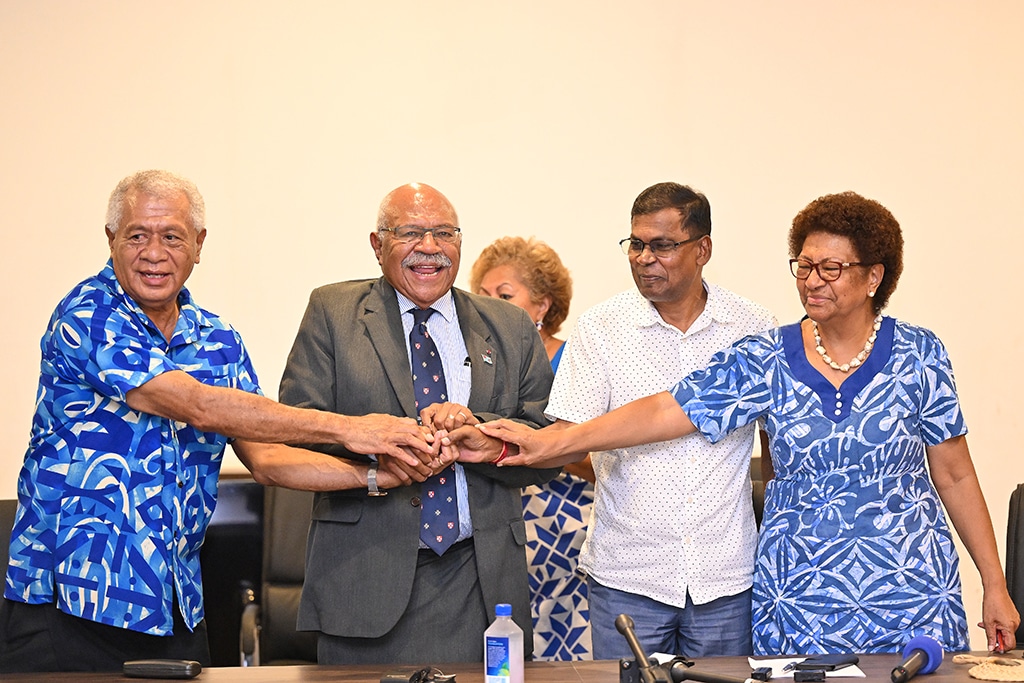SUVA: As a coup-maker turned politician, Sitiveni "Rambo" Rabuka is an ex-soldier and former international sportsman who is poised to again become the prime minister of Fiji after a 23-year hiatus. Rabuka turns 75 next September, but proved he still packs a punch at the polls.
During this year's campaign, he turned to TikTok to reach young voters-appearing in one clip in a training singlet after finishing off a resistance-band workout. "Someone asked me the other day, 'Do you ever lift, bro?'" the trim septuagenarian tells the camera.
"I said: 'I used to but now I'm more interested in lifting the standard of this country.'" The natural athlete was a powerful all-rounder in his youth. He represented Fiji in the hammer throw, shot put, discus and decathlon disciplines at the 1974 Commonwealth Games and scrummed down as a prop forward for the national rugby team.
He also made a name for himself on the parade ground and, having enlisted in the army following military school, Rabuka rose through the ranks. The lieutenant colonel led two coups in 1987 to earn the nickname "Rambo" by seizing power after armed troops took over parliament on his signal.
He was, however, unhappy with the way political negotiations progressed and then staged a second coup by declaring Fiji a republic with himself as leader. "I had to do what I had to do in 1987," he told the Fiji Sun in a 2014 interview.
Rabuka retired from the military to go into politics, taking his no-nonsense style of command from the parade ground to parliament. He was elected prime minister in 1992 and held power until he lost at the 1999 polls to Mahendra Chaudhry, Fiji's first Indo-Fijian premier.
A devout Christian, Rabuka married in 1975 but there are allegations in a biography, published in 2000, that he has had affairs. "I have admitted I'm no angel... I have been weak in those areas," he told the New Zealand Herald at the time.
Following a nine-month legal battle, Rabuka admitted in a magistrate's court in 2002 that he had fathered a child during an affair with a journalist. After Frank Bainimarama seized power in his own bloodless coup in 2006, he and Rabuka regularly locked horns over the years as fierce political rivals who traded barbs during this year's election campaign.
Rabuka sat out the 2014 elections, but led the Social Democratic Liberal Party-SODELPA-to a narrow defeat in 2018, despite the threat of disqualification hanging over him. His party lost to Bainimarama's Fiji First, but only after an appeal court dismissed a corruption case against Rabuka just two days before the election.
After quitting SODELPA in 2020, he founded the rival People's Alliance party, whose coalition partners have now helped oust Bainimarama and returned Rabuka to the prime minister's office. - AFP










